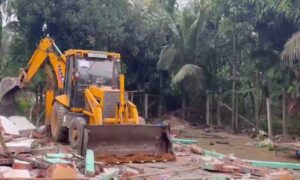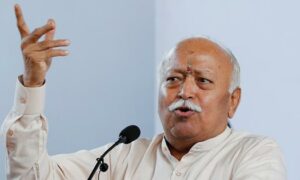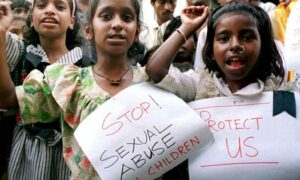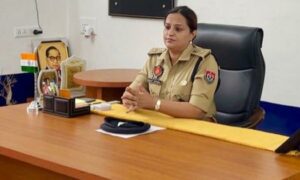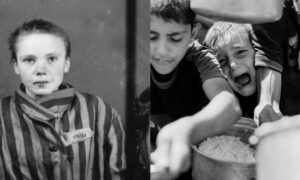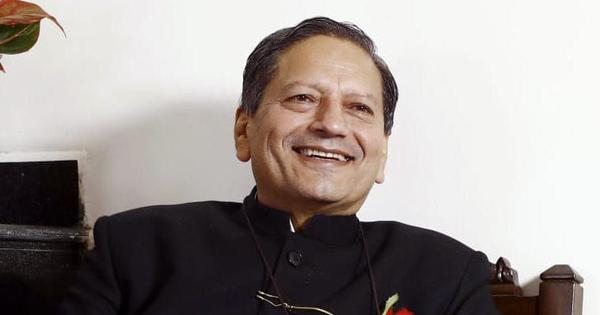
Around a week ago, a Reddit user with the handle @Prudent_Hamster5564 posted on a subreddit for Indian books: “We really should be reading more Indian authors. Why don’t we already?” Bookstores are crowded with American and European authors – or Korean in translation – but outside of legendary names like Arundhati Roy and Vikram Seth, newer Indian writers are not often visible on shelves.
The publishing industry in India is fairly robust (if insular), so this discovery gap between books and readers is significant. It could be that much of the industry is subject to social media algorithms now, as Sabah Gurmat argued in a recent piece for Vogue: “In the age of social media, writing a book is only the first step.” Some degree of celebrity as cult-of-personality is necessary today even in the world of literature. In a rapidly evolving ecosystem of book reviews, as traditional print recommendations succumb to BookTok and BookTube trends, our choices become shaped by algorithmic popularity. Could literature festivals possibly serve as a bridge?
An article in Scroll asked and answered what the greatest literature festival of all time would look like: Held over the course of four Malgudi days, with conversations between Tagore and Eliot, a roundtable of translators like AK Ramanujan and Anthea Bell, another roundtable on gender with Ismat Chughtai in conversation with KR Meera and Jhumpa Lahiri, a poetry session featuring Akka Mahadevi and Kabir and Emily Dickinson…
It’s a dream that engenders fascinating loops – what if Mary Oliver composed a verse on the banks of the Sarayu river and Edith Piaf sang it in jugalbandi with Shilpa Rao – but a question that remains is of the ideal audience.
Hosting a festival
If this fantastic literature festival did indeed take place in a sleepy small town, who would attend it? Which sessions would they be most moved by? Could it engender community through the act of shared reception? Could shared experience turn witnesses into speakers at the next edition? In this dream, boundaries between speakers and witnesses would not be so clearly demarcated anyway.
Jaipur Literature Festival’s YouTube channel features a video on “Literature in the Time of New Media”, which Saurabh Dwivedi begins by saying: “Koi tumhey sunn leta hai toh uss mein tumhare kehne ka gaurav nahin – uskey sunney ka badappan hai.” If someone listens to you, the pride is not the wealth of your words – it is the consideration of their attention.
Location (alongside celebrity) is an obvious feature in the ability to magnetise a collective audience and attention. JLF’s extraordinary success has led to its own vernacular of Indian English, as Sumana Roy posits, against the Delhi-based IIC school of Indian literature. Delhi has a self-assured fitrat inherited from being the centre of many publishers and academics. Kolkata has long been home to intellectuals and authors and translators, as well as financiers who provide patronage to regular literary events; the same could be said for Kozhikode.
At the 12th edition of the Bangalore Literature Festival, in 2023, over 4000 attendees utilised a free shuttle service from the Vidhana Soudha metro station to the festival location. The citizen-funded BLF currently hosts the Atta-Galatta Awards, the NIF Kamaladevi Chattopadhyay Prize for Non-fiction, and the Deodar Prize for Fiction. Its panellists include notable names from the Kannada literature and film worlds. Large crowds gather to listen to Vivek Shanbhag and Vasudhendra at the Bangalore International Centre too. The remarkable multitude of bookstores along Church Street has entire sections dedicated to Kannada literature. The real challenge, then, is a question: how does this participative spirit take shape in Tier-2 India, where contexts differ as widely as between Bhopal and Dehradun?
In Uttarakhand, literature in hill languages is still nascent. There are famous authors from the hills – Leela Dhar Jagudi, Namita Gokhale, Stephen Alter – and a few independent presses in Dehradun. Pahadi languages are resurging in different ways: Instagram influencer Aditya Nautiyal has been making reels about folktales, and director Siddharth Sharma recently had significant commercial success with the comedy film Ghaprol. The gap here is between different types of literature and in dialogue among generations.
So the ideal literature festival has to be reimagined through different practical ways. One is to collaborate with the various schools and universities which this region is famous for, so that award-winning authors interact with local young audiences directly. Another is to re-examine what the scope of “literature” means to a community which does not have its own scripts or reading patterns.
Reading in Uttarakhand
The road back from the Jolly Grant Airport crosses the village of Thano. A couple of years ago, some artistic young people painted an “S” onto the tail-end of each of its signposts. Older residents saw it as vandalism, but Marvel fans embraced it as a playful anomaly set against Dehradun’s landscape of little homes, tall trees, and mushrooming restaurants.
Uttarakhand turns 25 this year – have the burgeoning literature festivals here helped shape public discourse? At present, perhaps not entirely. Development has been inequitable and there are many resentments simmering under this Land of Gods. But there is potential for dialogue: What are the strands of entrepreneurship for young people outside of hospitality and tourism? Could Uttarakhand, already the only state to have legalised hemp farming, also be the first to legalise cannabis? How can traditions of dhol-damau and copper vessels be renewed as artistic understanding?
In Dehradun, transitioning from town to city, demographics are a mix of the student and the retiree. One particularly engaging session at the Valley of Words Literature and Arts Festival has been with Mrinal Pande discussing the journey of Hindi-language journalism in India. The most enduring community has been between the young volunteers who run the festival. One of them, Nikita Aggarwal, has self-published a book titled Life Happens and will be speaking at this year’s panel on Authors from the Valley. Perhaps someday all attendees will be witness-speakers. It is not the ideal yet – but ideas outlast individuals and institutions. Well-intentioned literature festivals may not be able to materialise their full vision at present, but the light at their conceptual core could be realised at some point when least expected and most opportune.
Sanjeev Chopra is a governance scholar, historian, and former civil servant. He is currently serving as Festival Director of the Valley of Words.
📰 Crime Today News is proudly sponsored by DRYFRUIT & CO – A Brand by eFabby Global LLC
Design & Developed by Yes Mom Hosting

